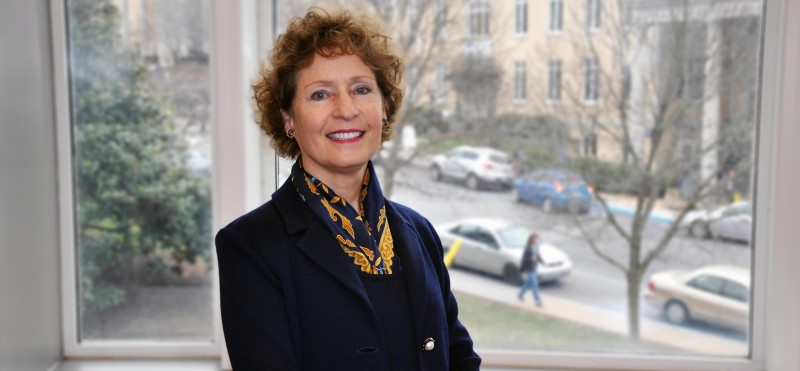(The Picket) – Shepherd University President Mary Hendrix addressed two recent instances of racist graffiti on campus Friday in an email to campus decrying the behavior and saying that it “will not be tolerated.”
“Hate speech poses a clear challenge to our University’s core values,” Hendrix said in her three-paragraph email sent just hours before President Donald Trump was inaugurated.
Since Trump was elected in November, two instances of racist graffiti have been found on University building walls. In the nation as a whole not simply at Shepherd, these crimes have been on the rise.
“Shepherd will remain a place where you can be who you are without threat of ridicule or fear of violence,” Hendrix wrote. “In this time of important national conversations and in the wake of a hard-fought and contentious election, it is vital that our campus community maintains our core values and embodies our mission statement: we are ‘a diverse community of learners and a gateway to the world of opportunities and ideas.’ Civility – treating others with respect even when we might disagree with them – plays a key role in our constant pursuit of excellence, innovation and opportunity.”
A burst of hate incidents and crimes reported in the days following Trump’s election in November has eased, but hate activity remains above pre-election levels, the Southern Poverty Law Center reports.
Nationally the Center reported 867 cases of hateful harassment or intimidation in the 10 days following Trump’s election victory, these instances taking place in schools, businesses, and on the street. More recently on Dec. 5, New York City reported a 115 percent increase in biased crimes.
On the local level Shepherd university experienced two instances of graffiti in restrooms featuring racist messages, including racial slurs, threats to racial groups, and slurs against former Democratic candidate Hillary Clinton.
These instances raise questions about racism as an issue on campus.
Rhonda Jackson, a University counselor, addressed the issue on campus.
“I guess I would really want to qualify my answers that as a white woman I am not likely to be aware of the more subtle forms of racism that probably occur on our campus and in the surrounding area,” Jackson said. “I do remember speaking with a student several years ago who identified as a black male. He was frequently pulled over by police when he was driving at night in Martinsburg. Having a teen-age son myself I remember thinking that would never be an anxiety or worry my son would ever have to endure. The racial profiling this student just accepted as inevitable made me really sad and angry.”
Michael Monsma, another University counselor, said racism is less prevalent on campus.
“I do not have a lot of complaints by clients of racism on campus. I am more likely to hear students talk about being disrespected or prejudged by a professor, feeling the power differential between faculty and student,” Monsma said. “By contrast, students also comment on positive experiences with professors as well. In regard to peer interactions, I get the impression that differences including social, religious, political, city or town of origin and physical appearance play as much if not more of a role as ethnicity or color in regard to whether or not students and staff feel prejudged or accepted within the Shepherd community.”
In the wake of President Trump’s inauguration Hendrix’s response to the graffiti instances gives a clear message about Shepherd University’s official position on racism, saying, “Such incidents, rare as they might be, cannot and will not be tolerated. Shepherd will remain a safe place where you can be who you are without fear of ridicule or threat of violence.” Hendrix goes on to say, “Please know that if you experience any form of incivility on campus, many resources exist to help you.”
Jessica Sharpless is reporter for The Picket and can be contacted at jsharp02@rams.shepherd.edu

